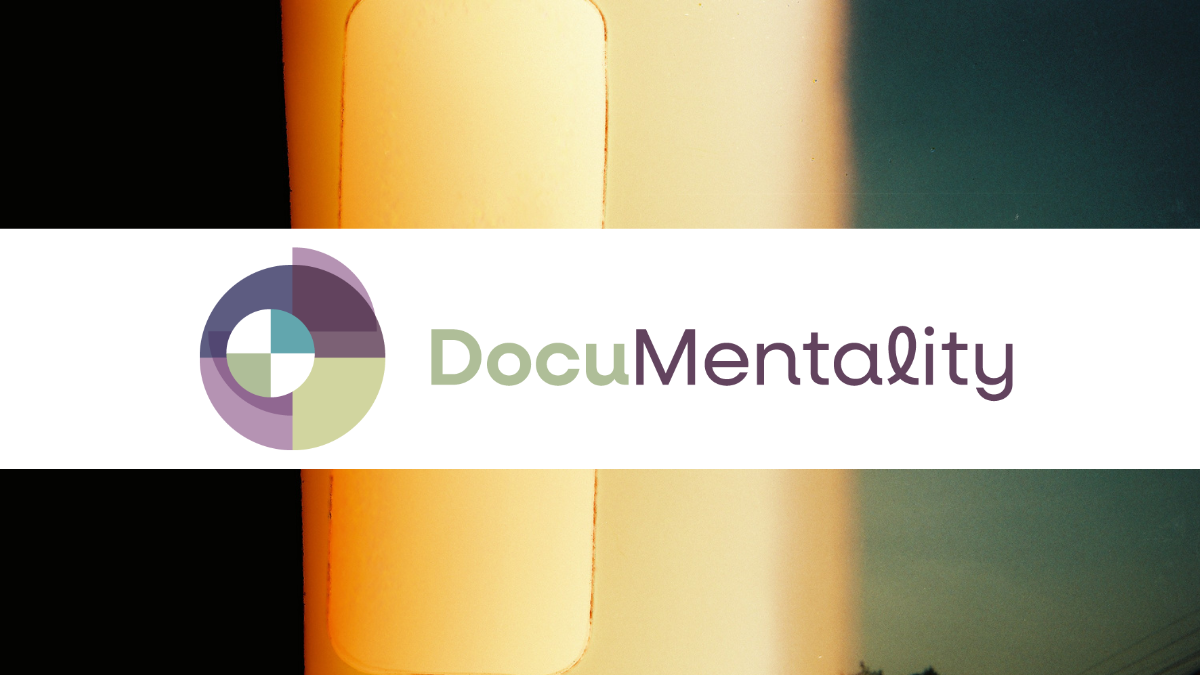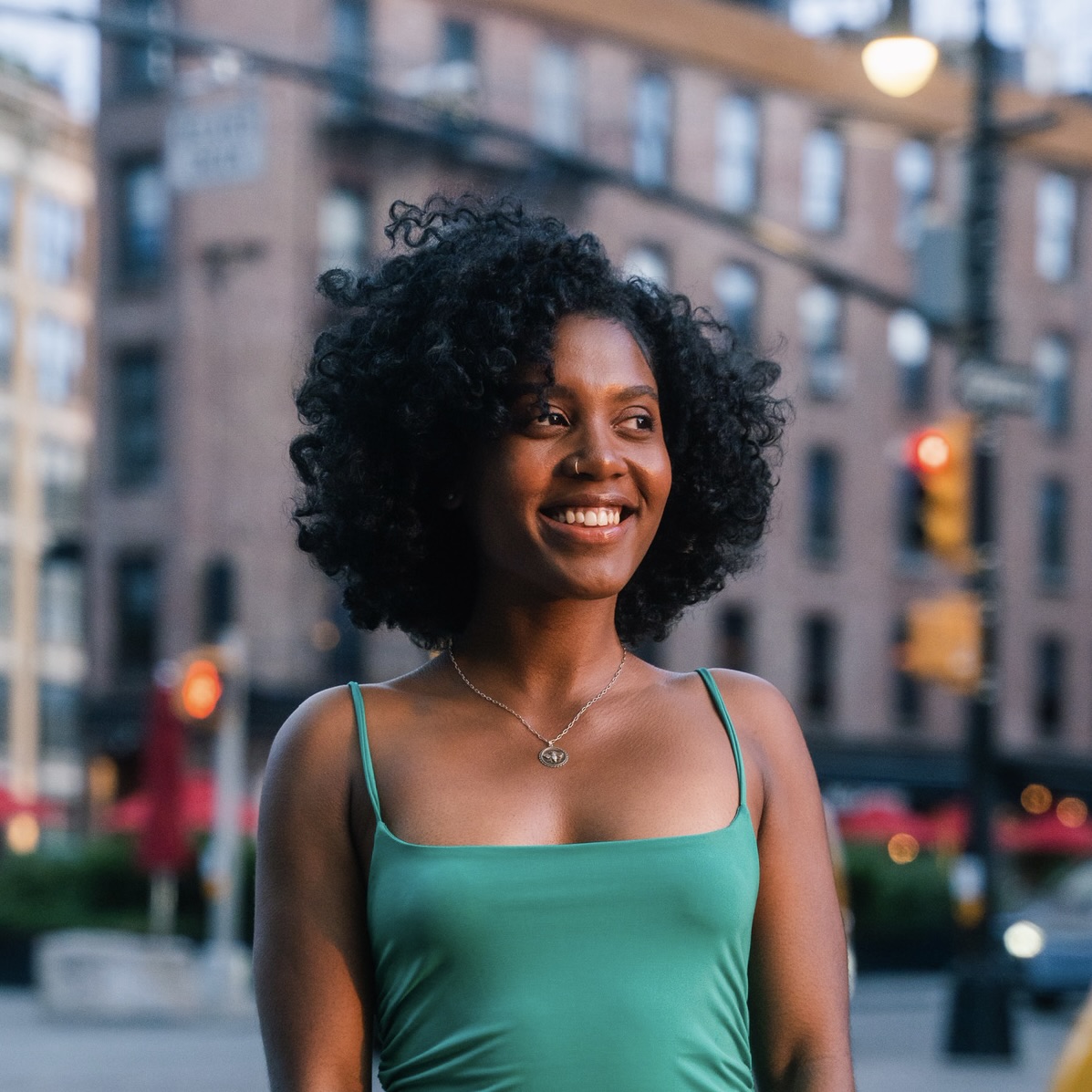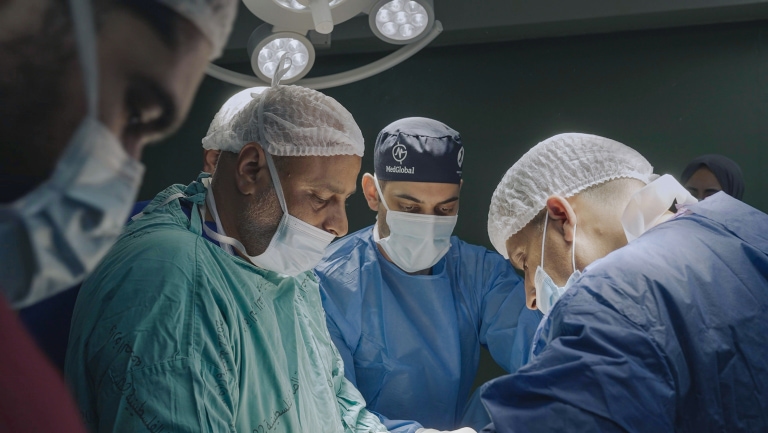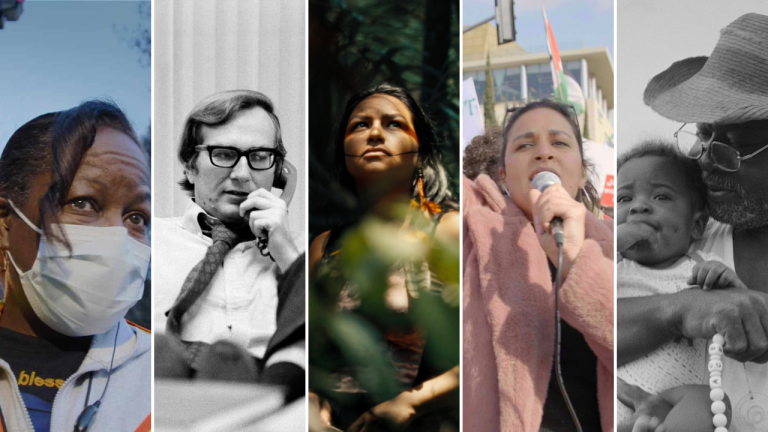
Malikkah Rollins
.png)
This interview has been edited for length and clarity.
For those who don't know, what is the origin story of Documentality?
Documentality started a few years ago as a conversation among some folks in the industry who are mental health advocates who were both feeling and seeing the emotional toll of working with intense material. Stories about trauma, injustice, grief. We realized that there was a real gap in support structures for mental health and well-being for filmmakers. [There were] so many stories of burnout and ethical dilemmas, vicarious trauma, isolation, and a lot of self-doubt. We secured funding from entities in the US, the UK, and Canada, and conducted over 20 focus groups with filmmakers to explore topics on mental health and well-being.
We wrote a report with concrete suggestions for what the industry can do to make things better for filmmakers. We had a suspicion going into this that even though we are focusing on filmmakers, this is really an industrywide issue. Actually, one of the women we talked to in a focus group said something like, "We don't need therapy, we need a revolution." And I just love that line because it highlights this issue being much bigger than just one documentary filmmaker. It's an industrywide issue. I think we've learned that mental health and well-being needs extend to participants in films as well. There's a lot more research and practice in participant care coming out now. And so we are seeing more open conversations, more requests from entities saying our staff are really needing help as well.
What trends are you noticing in the mental health of non-fiction filmmakers, participants, and audiences?
There are definitely more requests from entities and organizations for public speaking about this topic. There are a lot more requests from filmmakers for support, either for themselves as individuals, for their participants, or for their entire team, especially as a film is coming out because once it goes public, the life of a participant can radically change.
I think now, funding bodies are also trying to find ways to do the best that they can with what little they have to support mental health and well-being for filmmakers. I think their desire is big, but they have limited resources, so they have to figure out how they can best support filmmakers. The trends are a lot more openness, a lot more conversation, a lot more vulnerability, and a lot more public discussions.
What are you seeing come up for them in terms of the specific needs that filmmakers are looking for?
It depends on the filmmaker and depends on the project, but every filmmaker, every day, deals with ethical dilemmas. That's the one topic we could talk about for hours and hours and hours. It's a huge topic: how do you preserve your own emotional center and not get too burned out, or too stressed, and how do you take care of yourself. Because you know when you're a doc filmmaker, especially if you're telling a story that's personal to yourself, personal to a community, personal to an individual, you are holding that story in the palm of your hand with a lot of care. Similar to being a social worker or a therapist, you are holding someone's story. You're holding someone's life, someone's vulnerability in your hand. And that can take a toll on you.
It should take a toll on you because you're human. Mental health practitioners have practices and training to help us know how to manage taking on more than we can when it comes to someone else's story and someone else's trauma, someone else's issues. We have ways to take care of ourselves. We have professional groups that we belong to. We have mentors that we meet with. We have training to help us not absorb so much of someone else's story that you end up getting depleted. But filmmakers don't have that training. That's not where their area of expertise lies. They're good at telling stories.
What we're seeing is people feeling very depleted. They are very motivated and passionate about the topic they are covering, but also emotionally depleted, feeling like there's something wrong with them because they're so burned out, stressed, or tired, when in reality it's a much bigger issue than just them. So a lot of caretaking questions are coming our way, like: how do I take care of myself, how do I navigate relationships with participants, how do I take care of my team, how do I take care of the audience.
Documentality has a new resource, the Filmmaker Support Directory. Could you share a bit more about the filmmaker support directory and what drew you all to move forward and create this new initiative?
Many filmmakers, both in the focus groups and out in the world, were always asking us for guidance on who they can turn to. Some filmmakers, for example, have said to us, "I have a lovely therapist, but my therapist doesn't really understand the arts or the documentary world." The resource directory is very niche in that everyone on it has some experience with documentary. That's why we did it: to connect clinicians and practitioners who have experience working with documentary filmmakers with filmmakers in the documentary community.
Getting a bit more practical, what kind of support do these mental health practitioners on the database offer?
Most of the people on there are therapists. We have one woman who is more of a life coach, and she helps people with transitions and leadership work. We have two somatic practitioners who can help you identify how your body is responding to emotional turmoil and support your recovery. You can do one-on-one more conventional therapy, or you could do what our friends from Film in Mind call a film supervision, which is a little bit like therapy, but rather than have the individual at the center of the work, you have the film at the center of the work. Film supervision is something that Film in Mind, and really Rebecca Day, pioneered.
There's a lot of group work that can be done. For example, if your whole team wants to get together, such as yourself, your editors, and maybe your DP, to talk about the mental health and well-being of your team and of the whole process, that's also an option. We also offer group workshops. For example, Rebecca and I did a public seminar a few months ago about the emotional toll that editors and folks in post-production take on, and I presented at the Southern Documentary Fund about the boundaries between directors and participants.
We can also do project consultations with the team, which would incorporate how you can be intentional, thoughtful, and mindful about what the participants will need throughout the process, from pre-production to film release. We also offer consultations for production companies to help them understand how to support their own filmmakers.
Can you speak to some of the barriers that typically stand in the way of filmmakers accessing mental health support, like the one that y'all are trying to connect folks with?
For many, it is the stigma of needing help and needing mental health support. For some folks just that word or that term mental health is very off-putting. They don't want to seem like they need help. Part of the problem is the cost because it can be expensive. Although I will say that I think everyone on the directory has some kind of sliding scale fee, or they have a certain number of spots that they hold open for lower-income filmmakers. We really wanted to put people in the directory who understand that doc filmmakers have the need but may not be able to pay someone's full rate. We're all very aware that doc filmmakers are not rolling in the dough. So, we're good at getting creative with how we can support filmmakers within their financial limits. We're also very good at boundaries. If we can't help you, we will say that and offer alternative suggestions.
Another barrier, which is much bigger than any of us, is that we really haven't built an ecosystem that reflects the reality of how emotionally demanding the work is, or an ecosystem that reflects the reality that we need to slow down. We all need to slow down, especially people who are making films and those who are expecting the films to be delivered on schedule. It doesn't serve anyone to be putting so much pressure on the whole ecosystem to churn, churn, churn, hustle, hustle, hustle, produce, produce, produce. It just doesn't help. The entire industry needs to be reframed and shifted to better support the mental health and well-being of everyone, not just filmmakers.
What recommendations do you have for filmmakers as they are on the database and seeking to identify the best fit?
Well, I think you first have to ask yourself or ask your team, "What do we need right now? What are our pain points? What is stressing us out? What are we finding we really need help sorting out?" Of course, reading the bios of all the practitioners on there is really important. I think most will offer a free 15 or 30-minute discovery call to listen to what you need and then make some suggestions.
We're going to zoom out a little bit to the world in which we live. I know we've talked about this as [fellow] social workers. In what ways do you see non-fiction storytelling and mental health interrelated?
When you're a mental health professional and also a doc filmmaker, you have a deep responsibility to the person that you're working with in terms of how you hold their story.
Holding someone's story is very vulnerable for both you and the participant. Knowing that you're walking into vulnerable territory is really important. Social workers and other mental health professionals have a code of ethics that we have to abide by that is at least for social workers very detailed but really designed to be protective and respectful for the folks that we're working with to show dignity and kindness, to value their humanity, to really value boundaries. I think filmmakers also have that deep responsibility towards the other person involved in the storytelling process.
I think the care, just like with mental health professionals, has to be very intentional and thoughtful. It has to have built-in pauses where you can really evaluate if the care you're providing in the filmmaking process is thoughtful, based on values, and intentional. I don't think any documentary filmmakers set out to do this, but participants can end up being harmed, and people on your crew can end up being emotionally harmed. The more intentional and thoughtful you can be as a documentary filmmaker, just like a therapist, the less harm is going to happen. You're much more likely to mitigate any harm if you can be thoughtful and intentional and if you can own the responsibility that you have as a doc filmmaker, which is a huge responsibility.
At the same time, if the process is held with thoughtfulness, intentionality, and deep values, storytelling can be a real space of healing, clarity, and connection, just like mental health work can. So they're really not that separate. They're constantly shaping each other. How we care for people during both processes really matters just as much as the story that people end up telling. In some way, I think it boils down to responsibility for both the clients you're working with and the participants and their story that you're telling. Lastly, when you're dealing with communities or people who have been through trauma, there's an extra layer of responsibility that, as a filmmaker, it is your job to get informed about because trauma-informed filmmaking is a real thing. Not understanding what trauma is and how it impacts yourself and the folks that you're working with can really end up innocuously harming people.
Why would you say that this moment in time is critical for this kind of resource?
I don't think that this time is different from any other time. Mental health needs have been there. And look, I've only been in the doc world for going on four years, but I don't think things are different from what they were probably five, six years ago. Maybe there's less funding, and that sounds more stressful for sure, but I think that this moment is not a whole lot different. The need for mental health and well-being support has always been there. It just may have been more underground and not discussed. I think filmmakers have been absorbing the emotional toll of their work probably for a very long time, but maybe absorbing it in silence versus in community.
Just in the three and a half years I've been involved, I'm seeing a tremendous shift in the number of conversations and the number of requests that we are getting for this topic to be discussed either publicly or privately, and in one-on-one work or work with the team. It's actually very encouraging.
What are your hopes for this resource as it finds its way into the documentary landscape?
We want people to find it, physically know it's there. We want people to use it. And to me, use it means assessing what you need in the moment, reading all the information on the database about each person, and then reaching out. I think we need people who identify as men [in the directory] because right now it's all women identified. We could use some more BIPOC folks on there as well. I also want non-English-speaking [practitioners] so it can become more of a global directory so that folks from all over the world see their identity, their culture, and their language represented in the directory. I would love for funders and arts organizations to use it, too, for their own staff as well.
It would be amazing if funders and arts organization employees could incorporate the directory into their labs, fellowships, and communications with filmmakers. So it doesn't become a separate thing, but it's more baked into everything that is a part of being a documentary filmmaker. Because funders and different arts organizations are so deeply connected to filmmakers, we really need those entities to absorb this and endorse the directory as a path and as a tool for filmmakers to feel that they're not alone and that they can reach out for help and guidance for themselves, their crew, and participants. And ultimately, we would love to do more work with filmmakers about supporting audiences. We want it to be much more vibrant, public, and available.





.png?resize=768x0)

